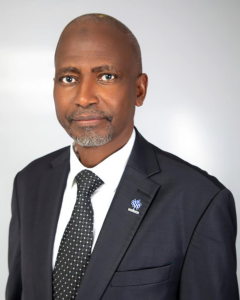In anticipation of the 9th UNESCO Africa Engineering Week & 7th Africa Engineering Conference in Pretoria, South Africa, Mustafa B. Shehu, the President-elect of the World Federation of Engineering Organisations (WFEO), shares his insights on how Africa can leverage its engineering expertise to foster continental growth.
“We have some of the best engineers in the world,” emphasises Shehu, pointing to the ubiquitous presence of African engineers on global projects. He underscores that African engineering education aligns with international standards, with universities offering comparable curricula. Moreover, Shehu provides examples of African engineers excelling on a global scale, citing instances of graduates from African universities surpassing their peers abroad. These achievements serve as a testament to the calibre of engineers produced by the continent. “To prevent our engineers from seeking opportunities abroad, governments must enact deliberate policies,” Shehu urges. He stresses the necessity for governments to facilitate opportunities and enable local engineering firms to partake in national infrastructure development projects.“The quality of African engineering graduates’ rivals that of global peers. We also require consistent operational strategies within engineering companies, along with effective succession planning, to build engineering capacity for the future.” Experience in engineering, Shehu notes, is cultivated through practical application in specific industries. He emphasises that experience is industry-dependent, shaped by mentors and senior professionals in the field.
Furthermore, Shehu encourages African engineering companies to extend their operations internationally, i.e. outside of their respective countries and into the African continent, fostering collaboration while also seeking opportunities. “We often associate the concept ‘international’ with, for example, China, the United States or Europe, but we need to think of Africa and its countries as a ‘an international platform’. We should look for opportunities on the continent to build resilient infrastructure.” He again stresses the importance of reciprocal support between African governments and local engineering industries. As the first Sub-Saharan African to lead the WFEO in the coming months, Shehu expresses his enthusiasm for the upcoming the UNESCO Africa Engineering Week & 7th Africa Engineering Conference in South Africa. He sees the event as an invaluable platform for African engineers to share experiences, challenges, and successes. He emphasises the importance of networking and collaboration among engineers across the continent. He concludes that Africa has the potential to lead in engineering excellence. “With deliberate policies, collaboration, and a belief in indigenous capacity, African engineers can play a pivotal role in shaping the continent’s future. The upcoming Africa Engineering Week promises to be a crucial forum for furthering these goals.”






